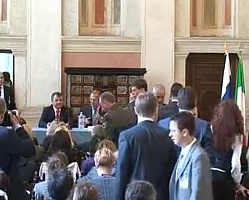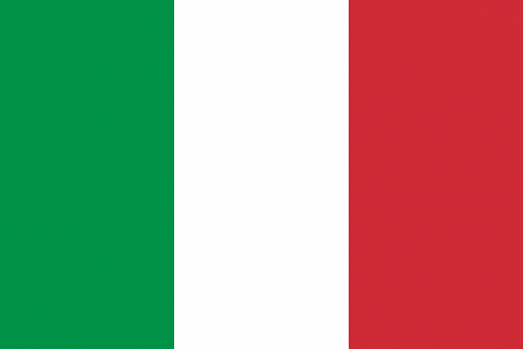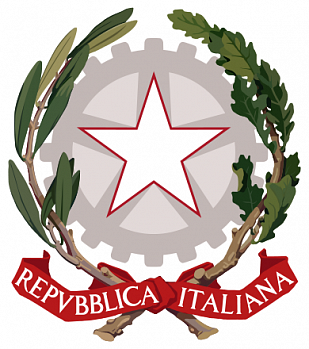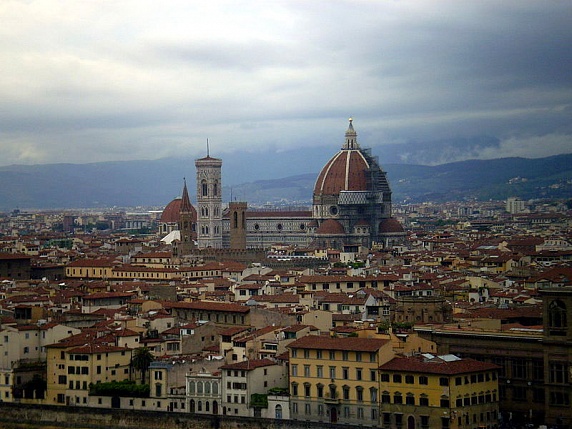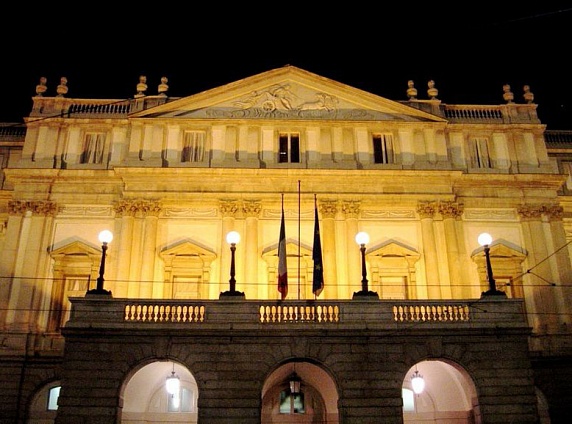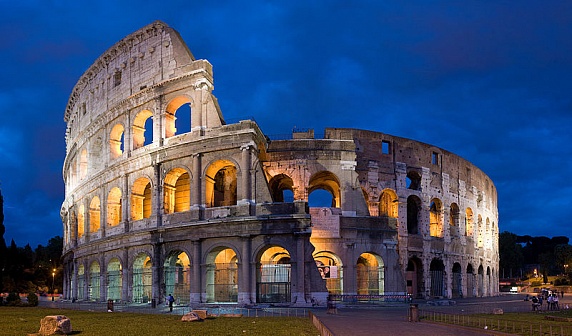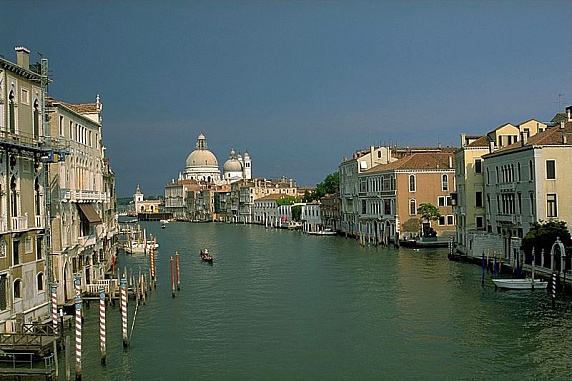 the Republic of Italy
the Republic of Italy
Transcript of Response to Media Questions by Russian Minister of Foreign Affairs Sergey Lavrov at Joint Press Conference Following the First Meeting of the Foreign and Defense Ministers of Russia and Italy in the ‘Two Plus Two’ Format, Rome, May 20, 2010
Dear colleagues,
Dear members of the media,
Today we are holding the first meeting in the "two plus two" format. The agreement about this was reached in December last year during the round of interstate consultations involving the President of the Russian Federation and the President of the Council of Ministers of Italy. Then, in Rome, Dmitry Medvedev and Silvio Berlusconi set us the task of helping develop practical steps to bolster European security, which we actually are doing. We appreciate the committed attitude of our Italian partners to the initiative of the President of Russia to develop a European Security Treaty, and the constructive approach of Italy to strengthening mutually beneficial practical cooperation within the Russia-NATO Council on the basis of the principles approved at Pratica di Mare, presupposing the indivisibility of security, and joint work on an equal basis.
Speaking about our relations with NATO, I'll note that the Russian side is now carefully studying the report of the Group of Wise Men of the North Atlantic Alliance concerning its new strategic concept. We will continue dialogue with our NATO partners on issues that we think are important from the viewpoint of our relations. We hope that the NATO's new strategic concept will devote due attention to developing a partnership with Russia based on, I'll stress once again, the principles put at the heart of the Russia-NATO Council mechanism in Pratica di Mare.
In terms of reinforcing European security in all its dimensions, we pay ever more serious attention to our relations with the EU. They naturally rest, in the first place, on strong economic, trade, investment and energy components, but they increasingly embrace the burning issues of European security and the issues of crisis management. We appreciate the efforts of the Italian side to ensure a sustained and constructive partnership between Russia and the European Union. Towards the summit in Rostov-on-Don we expect – Minister Frattini said about this – to agree on a whole array of important documents that will include concrete plans to construct the Modernization Partnership between Russia and the EU; ensuring fast and clear progress towards a visa-free regime, and cooperation in resolving the crises in various parts of the world, as well as on other issues.
We also discussed the conflict situations in different regions. We told our Italian colleagues about the Russian approach to stabilizing the situation in the South Caucasus on the basis of the Medvedev-Sarkozy plan, primarily with respect to addressing the specific humanitarian problems of people living there.
We also shared the opinion about the necessity to put the Transnistrian conflict settlement back on the negotiation track. To do this, first of all, it is necessary that both parties should respect the understanding reached earlier about the basis on which to negotiate.
We talked about Iran. Now this is a widely discussed issue. And it is really urgent. Some chance came after the Brazilian President and the Turkish Prime Minister reached an agreement with Iran on the supply of fuel for the Tehran research reactor. Together with Italy we want Iran to comply faithfully with the obligations contained in the declaration and as soon as possible send a formal written request to the IAEA for prompt approval and precise realization of the scheme for the exchange of low-enriched uranium for fuel for the research reactor. We believe that discussions in the UN Security Council should not interfere with this, especially as the draft resolution, which was introduced by the US, is still being studied by the nonpermanent members. We will treat most respectfully the position that they will take on the draft resolution. I believe that on such matters, the Security Council should reach a consensus.
In conclusion, I want to note that we are ready to closely cooperate with NATO, the EU and our other partners on Afghanistan. We expressed our condolences to our Italian friends over the death of two Italian soldiers serving in Afghanistan as part of the Italian contingent of the International Security Assistance Force. We believe that Afghanistan is a problem that has many dimensions and which must be tackled in a comprehensive manner and through collective efforts. There are still a lot of untapped reserves here. I think that the international community should draw the appropriate conclusions and act in a more coordinated way. The importance of collective methods of determining the strategy for Afghanistan is bound to increase. A conference in Kabul is planned for July, to which, I hope, we will come better prepared than we were before.
Thank you once again our Italian friends for the hospitality and the excellent organization of our work.
Question: A question on Afghanistan. Today there was confirmed the role of Russia in terms of transit and assistance in logistics. But you talked about reserves and unused opportunities, as well as the need to find new approaches. Could you clarify this statement?
Lavrov: First, the question of the transit of an Italian contingent is now being decided, the appropriate agreement is being developed and negotiations are at an advanced stage. Such an agreement will open up good opportunities. So far no such agreement exists.
Secondly and more broadly, we consider that the main reserve to be used is a much more serious attitude to combating the Afghan drug threat. This approach should only be comprehensive, including not only heroin laboratories, not only heroin caravans, but also opium production in Afghanistan. So far we cannot find understanding on the part of some of our western partners regarding the need to destroy opium plantations. At the same time, for example, in Latin America, where the drive against cocaine is under way, crops are being destroyed very actively. It turns out that in Afghanistan we are combating only the second, third, fourth stage, but the most important stage – the stage of opium poppy cultivation – our partners in my view are not really in a hurry to end.
We are engaged in relevant discussions, including in the Russia-NATO Council. Viktor Ivanov, the head of Russia's Drug Control Agency, spoke to the Council two months ago. By the end of the conversation, it seemed to us that the NATO partners had become more interested in our proposals. There were several of them, they include an additional UN Security Council mandate for the International Security Assistance Force to destroy opium poppy crops; entering drug traffickers and those who provide land for the production of narcotics in the lists of individuals subject to UN sanctions, and a number of other things, which we believe will increase the effectiveness of the fight against the drug menace.
The most important reserve in this particular aspect consists also in the need for close cooperation between NATO, the backbone of the International Security Assistance Force inside Afghanistan, and the CSTO, which works, including against drug dealers, on the external borders of Afghanistan. For more than five years we have been inviting our NATO partners to establish such particular cooperative ties to more effectively coordinate our actions inside and outside Afghanistan. We've been unable to get an answer so far, although many NATO members participate as observers in practical operations which the CSTO conducts on the outer perimeters of the Afghan border, intercepting drug caravans. Nevertheless, the Organization itself for some reason does not want to respond to the many repeated proposals. I hope that in the spirit of solidarity in the fight against the threats and challenges that are common to all states, this position will become more constructive.
Question: Today the NATO Secretary General is discussing the placement of elements of a missile defense system in Europe with the President of Bulgaria. I understand that today you spoke with your Italian colleagues about possible cooperation on missile defense on the European continent. In this connection I would like to clarify whether Russia's position has changed on the placement of missile defense facilities in Bulgaria?
Lavrov: We have repeatedly discussed the questions of missile defense with the Italian colleagues, as well as other colleagues in Europe and the US based on what we thought the Russian and US presidents had, in the past, clearly agreed on, with support from most European leaders. And they agreed to jointly undertake an analysis of the missile threats that exist in the world today. And based on this joint analysis to see what measures should be taken to neutralize those threats. I mean political, economic measures, and if they do not help, then the military-technical as well. A missile defense architecture that would result from such discussions must rest on agreed collective principles. This understanding was recorded between the presidents of Russia and the United States. There is the appropriate Russian-American mechanism within whose framework these missile threats are being discussed.
Moreover, NATO Secretary-General Anders Fogh Rasmussen recently called for missile defense cooperation between Russia and NATO within the Russia-NATO Council, especially as a few years ago, the first experience of such cooperation in developing theater missile defenses already occurred. It was helpful, and we are now looking to better understand in what specific form our partners offer us cooperation. However, if at issue is a joint analysis of threats, it would be strange to negotiate while one is about it the establishment of ironclad missile defense systems in specific European countries. This does not really correlate with the logic of collective work. Just this week, the NATO Secretary General in the Russia-NATO Council will substantively talk about his approach to cooperation with us on missile defense. We hope that after this the picture will somewhat clear up. Again, now the principal contradiction lies in the fact that seemingly all agree to embark on a joint analysis of the problem, but in parallel the work is under way on the unilaterally adopted decisions that should have been taken at the next stage.
Question: How do you assess the content of the agreement reached in Tehran by Brazil, Turkey and Iran? If Tehran meticulously adheres to the terms of this agreement, will Russia support the imposition of new sanctions?
Lavrov: I answered this question in detail in my opening remarks. Once again I'll briefly repeat that we view positively what President Gul and Prime Minister Erdogan achieved. The Tehran Declaration of the Foreign Ministers of Brazil, Turkey and Iran has a very important component, which may help to solve the problem of exchanging low-enriched uranium for fuel for the Tehran research reactor. There are things in the declaration that need to be clarified, they are rather vaguely defined. Nevertheless, in regard to the exchange scheme of low-enriched uranium for fuel, approximately everything is understandable there. It is now important that Iran should send an official message to the IAEA in order to be able to quickly, without delay, proceed to agreeing all the technical and technological aspects of the scheme. We attach very great importance to this process; it should not be interfered with by deliberations in the UN Security Council on a new resolution, particularly since, as I said, the draft resolution is now being studied by the nonpermanent members. They will require some time for that, and we'll be respectful to those positions that the nonpermanent members will express. We'll seek to give maximum consideration to their views in further work on the resolution, because on such major topics, I believe, the Security Council should seek to make decisions only by consensus.
May 21, 2010
